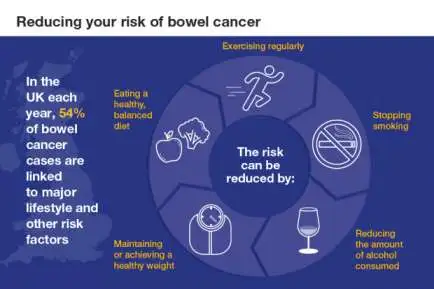
Marijuana, or cannabis, has a long history of human use. Although it remains federally illegal, many states have opened the door to medical, and even recreational use legislation. Notably, more and more research studies are being conducted on the medicinal properties of cannabis, and a growing body of evidence now supports the relevance and efficacy of this plant and its compounds in the treatment of various health conditions.
Here, I focus on a common diabetes complication, peripheral neuropathy, and the emerging scientific evidence for the use of marijuana to reduce pain associated with this condition. If you want to learn more about marijuana and diabetes in general, please check out our recently updated and comprehensive resource:
Marijuana and Diabetes: What You Need to Know
What is Neuropathy?
Over time, high blood glucose levels can damage blood vessels and affect nerve function. A common complication of long-standing diabetes, especially for those who have chronically high blood glucose levels, is neuropathy. Neuropathy occurs due to nerve damage from high blood glucose levels and patients often experience numbness, tingling, and pain (most often occurring in the legs and feet).
Common treatment strategies include optimizing glycemic management to help prevent disease progression, as well as pain management with medications like Lyrica (pregabalin), Neurontin (gabapentin), and sometimes with certain antidepressants.
Research Shows Cannabis Is a Promising Treatment
Recent research points to the potential benefits of cannabis for the treatment of peripheral neuropathy pain. According to Way of Leaf, nine states – Arkansas, Connecticut, Missouri, Montana, New Mexico, New York, North Dakota, Pennsylvania, and West Virginia – already list neuropathies as a “qualifying condition” for medical marijuana use.
Experts say that there is now “substantial evidence” that cannabis is effective in treating chronic pain. So far, at least three studies have evaluated the efficacy in the treatment of diabetic peripheral neuropathy.
For example, one preliminary randomized clinical trial conducted in 2015 identified a “dose-dependent reduction in diabetic peripheral neuropathy pain” in patients whose pain was not alleviated by other treatment strategies. This study focused on the effects of inhaled cannabis. Interestingly, another clinical trial that evaluated the efficacy of Sativex, an oral spay containing cannabis-derived ingredients (THC and CBD), did not find a significant improvement in pain reduction as compared to the placebo arm in their analysis.
It is possible that there are additional compounds that contribute or synergize with the known active compounds to deliver the therapeutic effects. Experts explain:
“Currently, there is a debate about the so-called “entourage effect” which refers to the idea that compounds other than cannabinoids in marijuana (i.e. terpenes and flavonoids) are important in its therapeutic effects. This idea has wide lay-popularity, but little scientific evidence to support it.”
Overall, while more research is needed, there is increasing evidence that cannabis can be useful for treating neuropathic pain:
“The scientific literature demonstrates some efficacy of medical marijuana/cannabis in the treatment of chronic neuropathic pain. Clinical trials of different routes of administration (sublingual, oral, smoked, and vaporized) have demonstrated analgesic benefit in the treatment of this costly and disabling condition and some treatment guidelines for neuropathic pain recommend consideration of cannabinoids as a second or third line agent.”
They also note the potential financial challenges that may come with using cannabis to treat neuropathy:
“As expenses for medical marijuana are not covered by health plans and are out-of-pocket, knowing the cost-effectiveness of medical marijuana may impact patients’ decisions regarding its use. Based on a recent published article, inhaled cannabis appears to be cost-effective when used as second or third-line treatment in chronic neuropathic pain.”
Summary
The medicinal properties of cannabis have been described for thousands of years, and now more and more modern research study outcomes suggest that cannabis and cannabis-based treatments are effective and well-tolerated for a variety of ailments. So far, several studies have shown that cannabis-based treatment approaches for neuropathy are effective, although additional investigation is warranted.
What do you think? Please share your thoughts on your experiences with neuropathy in the comments below. Have you tried or considered using this type of alternative treatment?
References
Heimerl K; “Medical Marijuana and Cannabidiol (CBD): Perception vs Facts” (2019) American Academy of Osteopathy (OMED 2019) http://files.academyofosteopathy.org/CME/OMED2019/Heimerl_MedicalMarijuana.pdf
Mechtler L, Ralyea C, Hart P, Bargnes V; “Medical Cannabis in the Treatment of Neuropathy” (2020) Neurology, 94(15S). https://n.neurology.org/content/94/15_Supplement/5020
Nemergut G; Marijuana (2019) Pain, pp. 315-319. https://link.springer.com/chapter/10.1007/978-3-319-99124-5_69#enumeration
Robinson-Papp J. and Dehbashi S; “Medical Marijuana for Peripheral Neuropathy” (2019) Neuropathy Hope Newsletter, Western Neuropathy Association. P.1 https://pnhelp.org/application/files/1415/6081/5051/WNAENews0719L.pdf
Wallace MS, Marcotte TD, Umlauf A; “Efficacy of Inhaled Cannabis on Painful Diabetic Neuropathy” (2015) Journal of Pain 16(7): 616-627. https://pubmed.ncbi.nlm.nih.gov/25843054/
Post Views: 3
Related Post
 29
29 Jul
Which Symptom Indicates That Someone May Need Mental Health Treatment?
Today! In this article!, you can find the best treatment for mental health. Which symptom indicates that someone may need mental health treatment? Perceive the indications of requiring emotional well-being treatment and assume responsibility for your prosperity. Try not to hold.
Read More 08
08 Jul
What Is Self-Management of Chronic Disease?
Diabetes, joint inflammation, hypertension, lung illness, corpulence and other persistent sicknesses can make life challenging to oversee for a great many more seasoned grown-ups, frequently compelling them to surrender their freedom. The Challenges of Chronic Disease More established grown-ups are lopsidedly impacted.
Read More 01
01 Jul
7 Lifestyle Tips to Reduce Your Cancer Risk
How in all actuality do individuals bring down the possibilities getting malignant growth? There's a lot of exhortation. Yet, on occasion, guidance from one review conflicts with the exhortation from another. Disease avoidance data keeps on creating. In any case,.
Read More 27
27 Jun
Effective Allergy Treatments for Kids: A Comprehensive Guide
Is your youngster experiencing a runny nose, sniffling, and bothersome eyes? Assist them with feeling improved with these regular sensitivity cures you can attempt at home. Does your kid have a runny nose, sniffling, and irritated eyes? They may be managing.
Read More